One of the often unsung elements of television production is the music that fills the backgrounds of episodic television. Actual theme songs are talked about, remembered and, in many cases, revered through time. But what about the music that swells during a romantic scene or musical energy that fuels a car chase or tinkling of the ivories or pluck of the strings that denote danger or suspense or identifiable themes of characters? All of that is as equally important in television as it is with film. And while it has long been present, and is often subconsciously versus consciously identifiable as to a particular television show, it is as developed and composed and as important for television as scoring is for film, particularly with a television series like YELLOWSTONE.
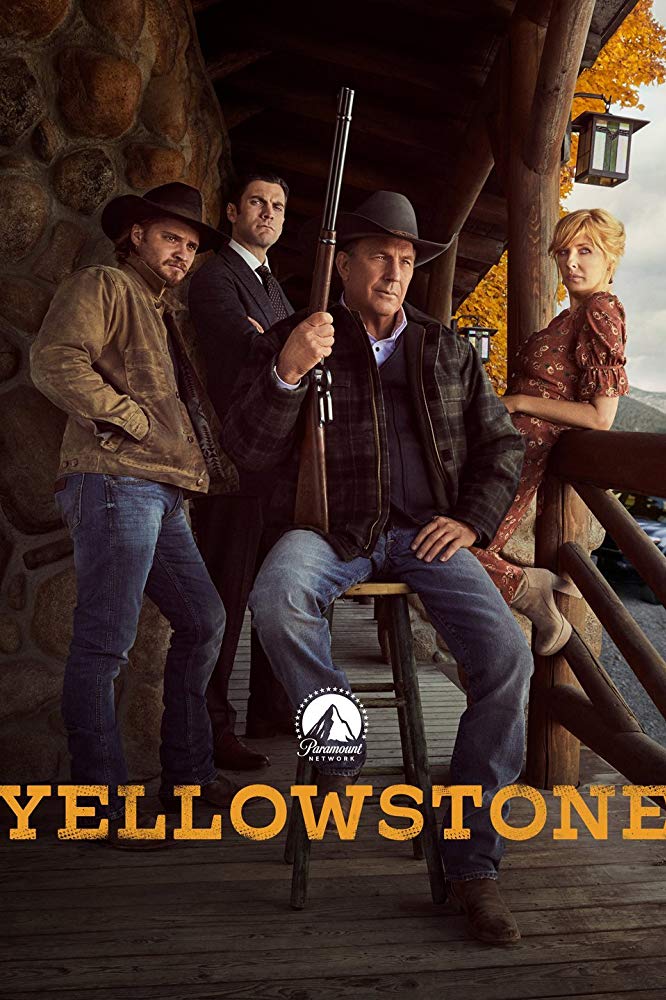
Starring Oscar and Emmy award winner Kevin Costner, YELLOWSTONE boasts an exemplary ensemble cast in this modern western that retains the touchstones of the Old West which are such a recognizable part of the tapestry that is America. Costner, as John Dutton is a sixth-generation homesteader and patriarch of a powerful, complicated family of ranchers. The Dutton ranch is the largest contiguous ranch in the United States but suffers from the conflicts arising from its borders – an Indian reservation, America’s first national park, and an expanding local town complete with land grabbers and corrupt politicians. In addition to Costner, other principal cast members adding to the fabric of YELLOWSTONE are Luke Grimes, Kelly Reilly, Wes Bentley, Cole Hauser, Kelsey Asbille, Brecken Merrill, Jefferson White, Danny Huston, and most notably, Gil Birmingham.
Thanks to writer/director/creator Taylor Sheridan and his cinematic approach in bringing YELLOWSTONE to life on the Paramount Network, we are treated to an award-worthy soundtrack with musical thematics one would typically find in a film. Approaching YELLOWSTONE in the same manner in which he approaches a film, Sheridan tapped the best artisans in the business to create the world of John Dutton, where the mores and codes of the Old West meet the Modern West. One of the critical elements of YELLOWSTONE is the music and for that, Sheridan looked no further than BRIAN TYLER.
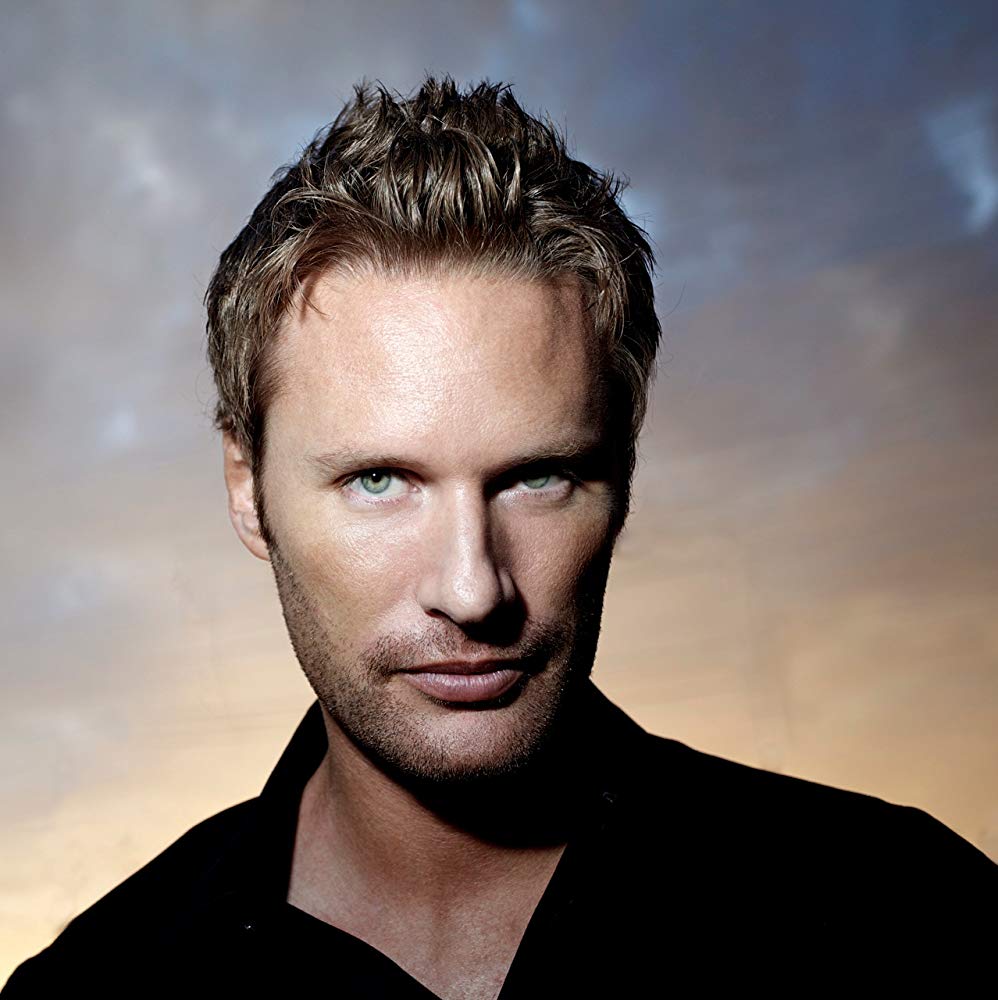
BRIAN TYLER is an American composer, multi-instrumentalist, songwriter, conductor, arranger, and so much more. And while you may not know his name, you definitely know his work as he has scored some of the biggest box office hits of the past 20+ years, among them. “The Expendables” trilogy, “Crazy Rich Asians”, “Avengers: Age of Ultron” with Danny Elfman, “Thor; The Dark World”, “Iron Man 3”, five installments of “The Fast and The Furious” franchise, “Power Rangers”, “Rambo”, and cult films like “Bubba Ho-Tep” and “John Dies At The End”, not to mention television series such as “Hawaii Five-O”, “Sleepy Hollow”, and the new “Swamp Thing”. He also did the re-arrangement of Jerry Goldsmith’s original fanfare for the Universal Pictures logo, and perhaps one of the most famous fanfares in history, that for the Marvel Studios logo which debuted with “Thor: The Dark World”. And now BRIAN TYLER turns his attention to the American West, blending cultures and generations, for YELLOWSTONE.
With every film that he has scored, BRIAN TYLER has captured not only the emotion and epic quality of the film but the emotional nuance and subtlety. Through music, he brings that emotional component that makes you care, care about the film, the story, and the characters. And he does that with great aplomb with YELLOWSTONE. While creating themes for each of the principal characters of YELLOWSTONE, where Brian truly excels is composing themes for the events of each episode. And unlike some the other artisans of YELLOWSTONE who moved on to other projects after Season One, Brian’s work continued from Season One through all of Season Two.
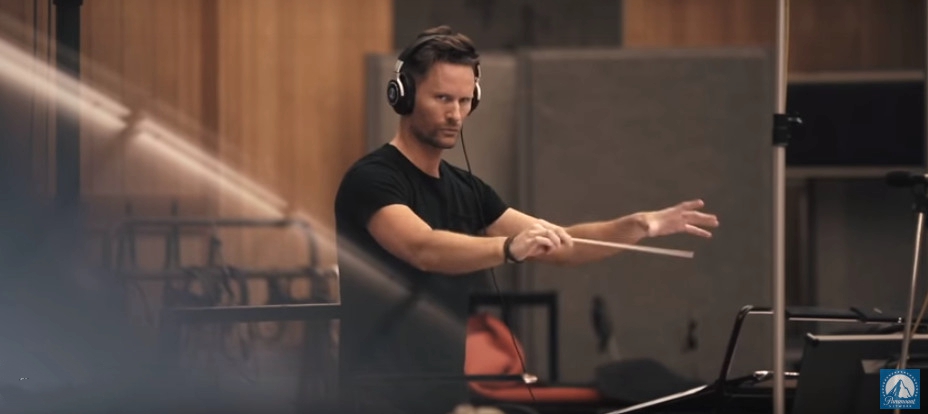
As you watch, and listen to, each episode of YELLOWSTONE, one can’t help but note not only the musical composition and melodies running through an episode, but the instrumentation which adds character to the overall story as well as defining moments and events and the emotional tone at play. Stretching himself and going outside the box, Brian went back to the musical roots of what the Old West was, instruments and music that came from immigrants who landed on our shores and travelled the land. Using the styles of old folk tunes in some of his compositions while in others, you can hear the lone pluck of a guitar string that harkens to the lonely nights of a cowboy out on the trail under the stars, or using strings over percussives to create the illusion of motion like the clip-clop of a horse or a train rumbling down the tracks. Cellos, violas, and even an Asian tam-tam help create a mood that evokes the early Chinese immigrants who helped build our railroads. The depth of history incorporated into the musical tracks for YELLOWSTONE is amazing. As Brian related to me, “this whole score can be performed live without any kind of modern element.”
Speaking with BRIAN TYLER at great length about his scoring for YELLOWSTONE, we dove into history, music, instrumentation and arrangements, and the emotion and truth of the series which is found in the score.
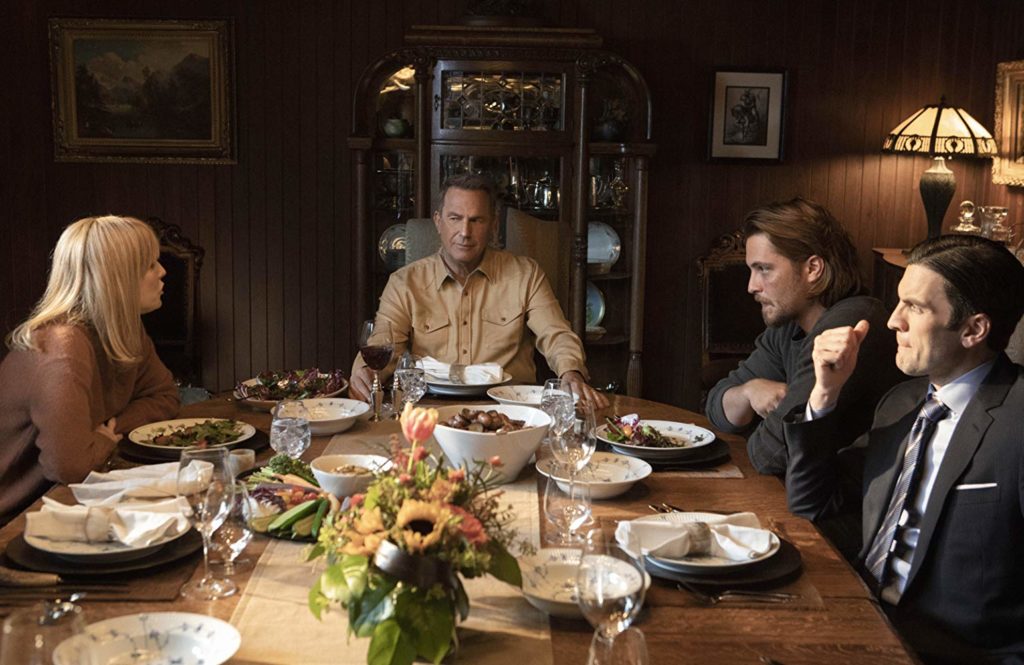
I am so familiar with your film work, not as much your television work, but with what you’ve done with YELLOWSTONE – I am in love with it.
Oh, thank you. It’s funny because the line now seems to have blurred between what’s considered television and what’s considered film and you know, Taylor Sheridan came to me and he was talking about it and he was just kind of treating it like he was going to do a long form film story, and we kind of really treated it like a film. It had all the earmarks of what a film was. He directed and wrote all the episodes. And then we’ve scored live with the Philharmonia of London with an orchestra and just treated it really like it was a 10-hour, 12-hour movie. So that was the approach. And talk about emotion! That is all about tragedy and triumph and betrayal and love and jealousy. All those things. They’re actually quite a melancholy score, at times very heartbreaking.
It really is, but something that you also capture with your score and these individual pieces that comprise it is your great sentimentality for the Old West. Number one, you start with strings. I can’t remember the last time I’ve listened to a score that has so many pieces with a viola or a cello to get that really deep resonant breathing, almost the heartbeat, of the old west. And you do that here.
What’s interesting about YELLOWSTONE and the approach with it was that I studied up on the old west a bit. . .Even though this is a modern tale, the old west has that shadow over every cowboy hat and rancher that’s out there. It’s a story about ranchers and cowboys basically, but the music of the old west is really imported, in a sense, from immigrants that came here. They were pioneers that walked across the land and any instrument that they could bring from, for instance, Europe or wherever they were from. Just take Ireland, for instance. Irish immigrants would bring their fiddles. They wouldn’t be from necessarily the highest upper class of Europe and so they would have maybe slightly more humble roots with their instruments. They wouldn’t be Stradivarius violins. They’d be what we now know as “fiddle”. And as they got here and they kind of traveled across to the west, really under hardship, they would need entertainment and they’d play their instruments. But they would really be gypsy-styled instruments from Europe that became American because they became folk instruments again. So that was really why I based it around those instruments. It was going back to what the roots of even what the old west was, kind of that mythological feel of old instrumentation.
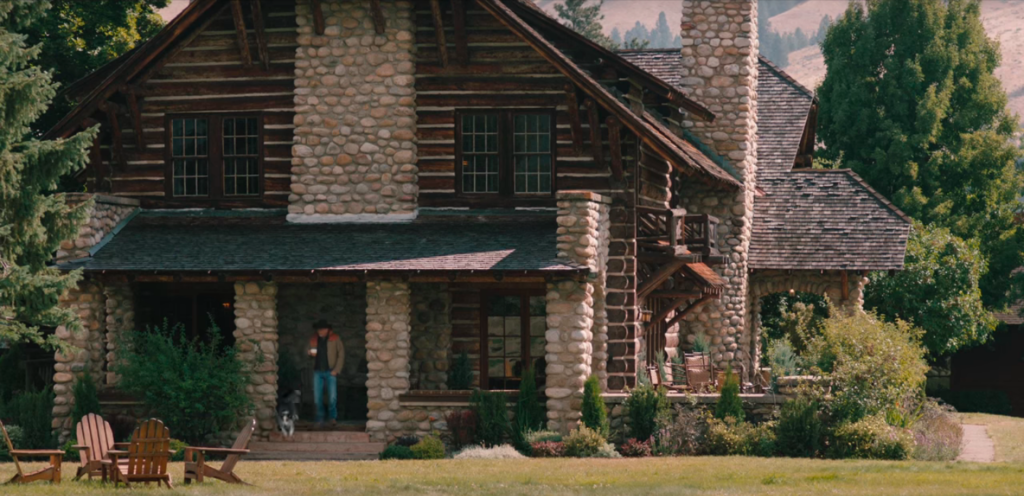
It’s funny you mention Ireland because one of the segments, one of the interludes, “Valley of the Soul”, is very mournful, almost like an Irish wail in a castle.
Oh, for sure. No, you nailed it! That is in the style of an old Irish folk tune. It really is. It would be played over drones back in the day and they would be very much, very plaintive. They were almost songs of sorrow or songs of joy and they would play it both, historically, at weddings and funerals. It would be one fiddle player playing against kind of a set tone. And I wanted to capture that as well. There’s all sort of fascinating roots through the American music that go back to things like that and you nailed it with finding a piece that has the roots immediately in that kind of genre.
I listen to some something like the “Code White” and to me, that just speaks to trains. The train’s a-coming! That whole sound that you have, it’s just like the train’s reeling on the tracks.
I really have that kind of chugging feel. Yeah, it’s funny. All the kind of percussive moments of the score came with the director and I. We talked about [how] we didn’t want to do it with percussions because we could do it with things like strings. And how it turned out, it kind of would sound either like trains or horses, kind of rumbling across tracks. In both ways it gives you that feeling of motion.
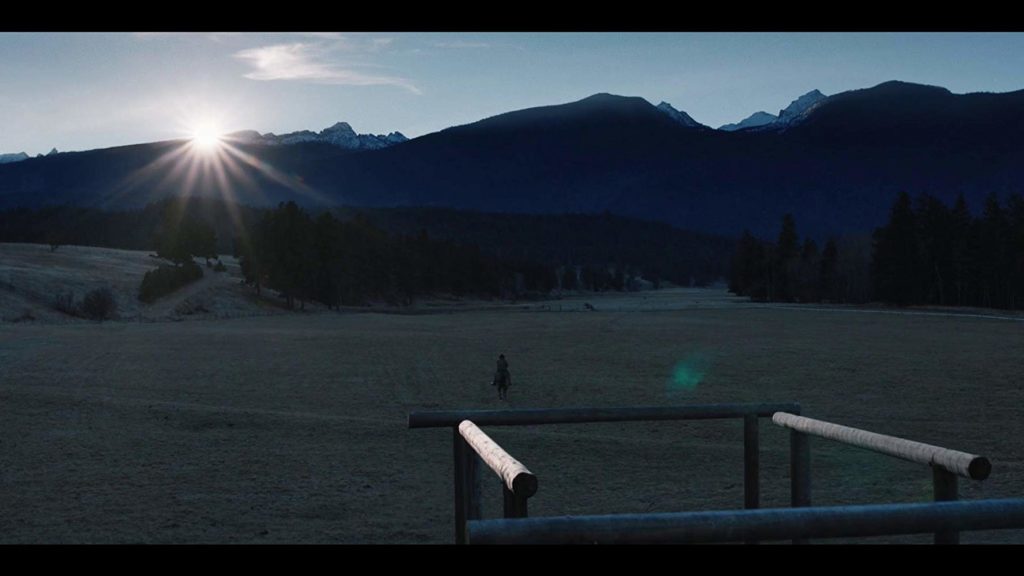
Even in the overall theme, which is filled with shades of the Old West, it even sounds like you might have an Asian gong in there, like the Chinese immigrants that came in. But you’ve got a beat that is like the clip-clop of horses.
Yes. Yes, you’re right. The whole piece starts off as a nod to the railroad. You’re finding all the things! It’s crazy. I haven’t even talked about these things, really outside of the director and I and you’ve figured it all out. The opening is, yeah, it’s absolutely a nod to the train tracks being laid down by the Chinese and that’s the first sound you hear right at the top of the theme. The big tam; an Asian gong basically is called a tam-tam. And then, of course, that mournful cello comes in with the main theme against the low trombones and brass that kind of has a Derge feel almost to it. And then there’s the cello who plays very, very high. And the viola, as you said, it kind of has that very emotional folksy feel. And it was very different for me too, coming right out of a few different projects that didn’t sound anything like it. It was really nice to be able to stretch and do things that were out of the box for what I kind of known for.
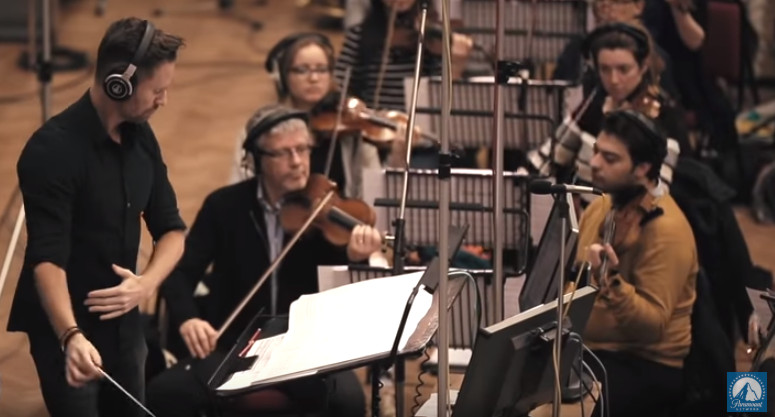
These are so different. The soundtrack for YELLOWSTONE is so different than anything of yours that I have heard, but it really comes down to the instrumentation that you’re using that is the real standout. I don’t think I’ve ever heard any piece that you have composed where strings are utilized as much as they are here.
Yeah, they’re starkly front and center. And I think part of that was the decision at the beginning that we really weren’t going to use any percussion. And so, what happens is the strings kind of jump into the forefront and have to carry the day. And this whole score can be performed live without any kind of modern element with the exception of maybe one piece on there. But on the whole, this is something that it’s very natural and human and has kind of the way the melodies are played. Also, there was no going back and correcting it and trying to get it pitch perfect. This was something we wanted to leave, the human flaws, in the actual recording, the musical kind of “rough edges”. We didn’t want to polish those off and make it too clean and perfect. So you hear some of that human kind of tuning and the element of many players coming together and attempting to sing perfectly, but never being quite able to. And it’s kind of like the opposite of singing with auto-tune. This score, it’s really not going back and overdoing trying to make it perfectly clean. The furthest away from the computer we could get was the goal.
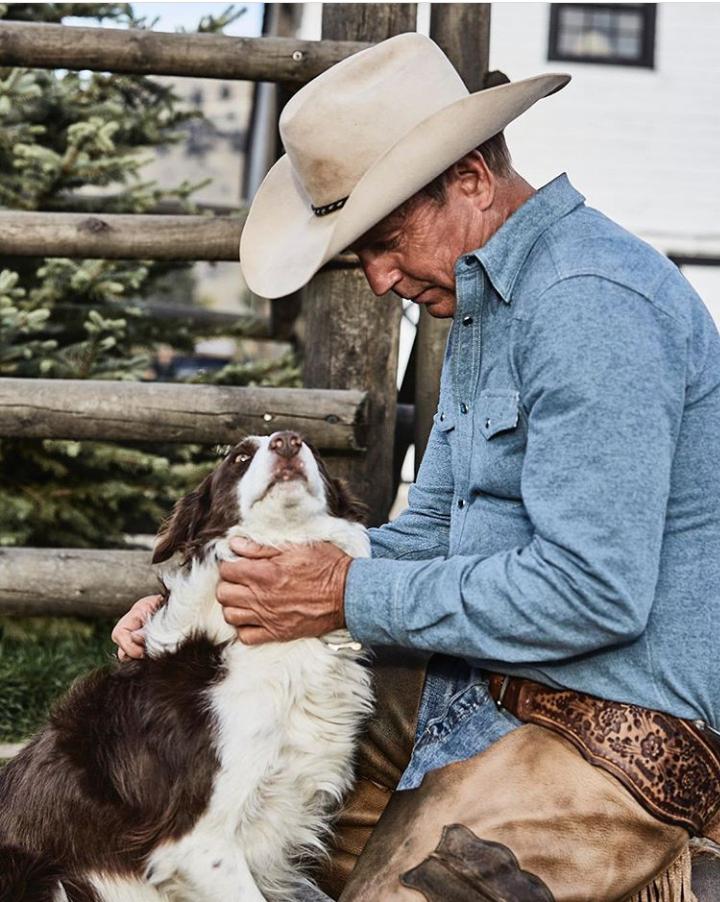
What’s so beautiful about it is, because you do hear the small human flaws, the music serves as a great metaphor for the patriarch, John Dutton. The music is synonymous with him.
Yes. The idea that a character could be that wrapped up in his own kind of pursuit of power, yet love his family. But at the same time, is not able to get out of his own way enough and not have it come back and boomerang back and hurt the very ones you love. And those human flaws, we all struggle with them ourselves, but he kind of is that personification of regret and as the story goes, it goes, keeps on, the screws keep on twisting evermore and it gets more and more emotional. And it continues as the story continues because now we just finished up the second season and the story, it’s really amazing and, I think, very powerful. I’m just really trying to support Taylor with his vision and that character Dutton. John Dutton is a really kind of a great character because there is something so iconic, but it has that mythological flavor. I mean, it goes all the way back to King Lear. It’s a classic character, but a really unique setting and so these themes are really about him and his family and the lost and also the games. You know, it’s about both sides.
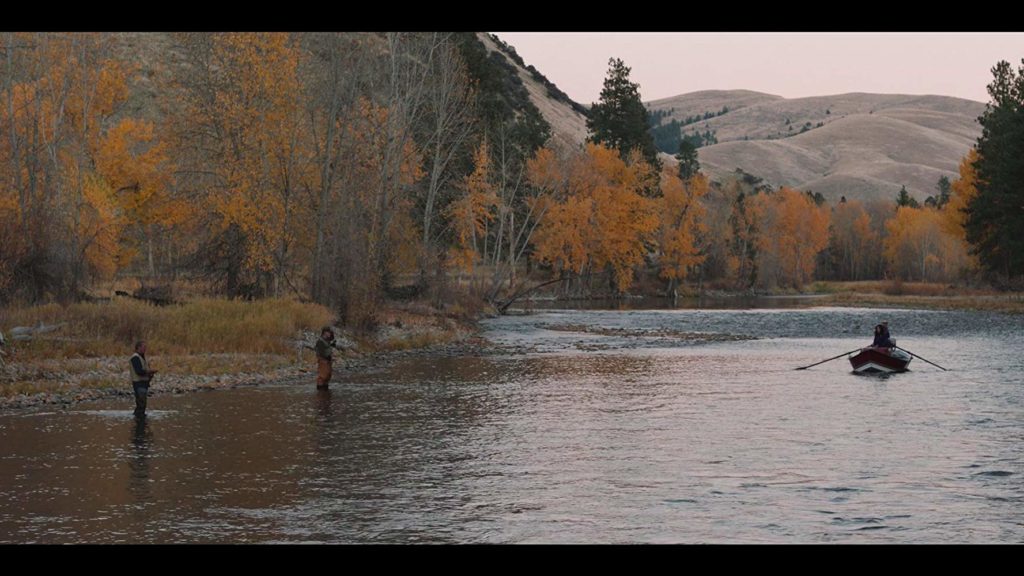
Absolutely. Am I mistaken or do you actually use some chimes in a few places like in your “Expansive Horizons” piece? It sounds like you may have some chimes in there. And also your piece, “The River”. I love that piece. It is one of the lighter pieces that you have in the track, but you have moments where it sounds like the trickling of water as the water rills over the rocks in the river.
That’s exactly right. That river that’s featured in the series kind of represents two things that are going on here. There’s things that brings the family together when they’re fishing and doing their thing, but it also ends up being kind of a political barrier about territory and that’s the piece that kind of is about the former. It has that kind of language, the feeling of letting your worries wash away, and it gives you kind of comfort, in a sense. But if you’re not careful, the very thing that you can find comfort in can come back to haunt you. So there’s parts of that river piece that got kind of twisted in later pieces that where you hear them very tonally and warmly in one place and then they kind of twist and become very tragic at other times.
Something that you very keenly do with a lot of these pieces is, for example, the “Burying Secrets”, and even “Proud Thieves” and “The Adagio”, you have your strings going, but then you bring in a guitar with a singular pluck. And that is so Old West. I immediately envisioned the cowboys on the trail.
For sure. You’re right. “The Adagio” kind of style strings have kind of that epic tone to them and very large emotion. Then I think the guitar brings it back down to a very personal tale because you can hear even the guitar is unavoidable. When I play the guitar in these things, you can hear my fingers kind of running across the strings and it’s imperfect. You can hear me breathing. All those things and we use the guitar and also the dobro, which is a type of guitar that’s an old, kind of a west guitar that has a resonator in it. And the idea of going across the range on your horse playing guitar, that sound comes from a practicality that these old ranchers, old pioneers, all the early Americans had riding horses and bringing their families across the new land. And it was a form of entertainment. So we were kind of saddled with the idea, no pun intended, of that music kind of evoking those qualities.
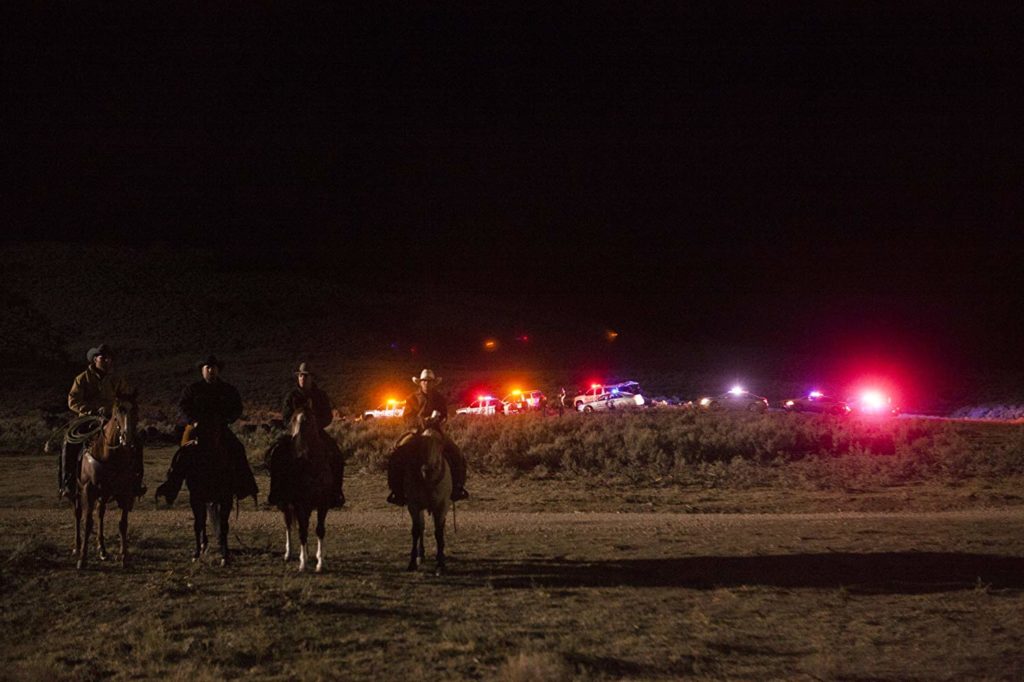
And it’s so beautifully done. But then you also, while you embrace the journey of the Old West, you also contemporize things with your arrangements.
There’s a few pieces in particular. “Let them Come” is one of them, which is kind of taking all these instruments that are natural and messing with them, run them in reverse and do all sorts of tweaking, down-tuned them and pitched them and it’s really disorienting. It’s during one of the pivotal moments in the very first episode that sets the entire story into kind of an inevitable direction. So at times, it’s kind of pulling away from what you would normally hear with arrangements and putting it on its head. In terms of contemporary orchestration too, I tend to use sometimes very avant-garde techniques with the strings. There may be very light in the background, but you hear those kinds of wispy, de-tuned violins and kind of odd sounding instruments that Penderecki and Arvo Pärt and a lot of modern classical composers use where they really push the boundaries of where you would bow on the strings, maybe off the edge. You turn the bow upside down and you hit the violin with the back of your bow and all sorts of kind of odd techniques that create eerie textures that are in there as well.
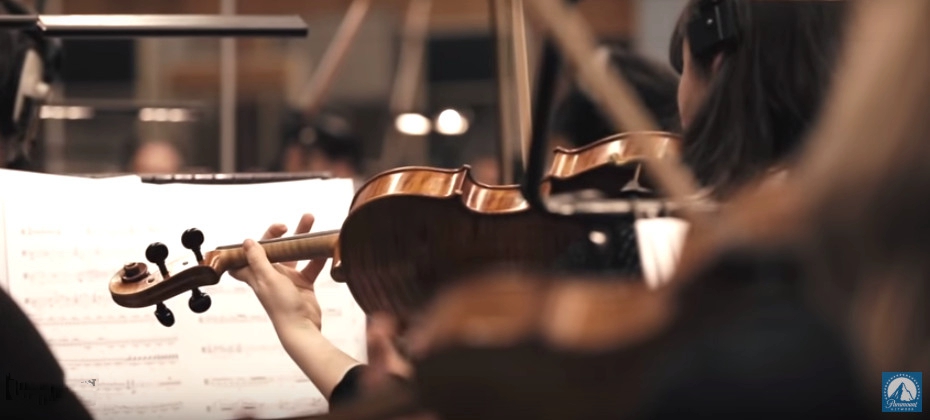
I just love the way you’ve done that so we have the best of the old world and the new all coming together just as the premise of the series does. I’m curious, Brian, did you know when you started composing for YELLOWSTONE, had you already decided on the instrumentation you would use? And if so, did that impact how you approached each composition, how you wrote the compositions with the notes, with the bridges, things like that?
It took me a while to figure out what the palate was, but pretty early. I’d read the script and I had one idea. Then I saw what Taylor shot and the performances and kind of how spare it was and haunting. And it did change to where the strings became the prominent focus and the idea of writing kind of folk melodies or ancient melodies, in a way, to make it feel mythological. That really happened after watching it. But there is an eclectic nature to it and it just kind of came to me. I don’t know how it worked, but it occurred to me what I felt would sound right. And the idea of going back to almost pre-old west. Like I said, it’s the music that influenced the Old West is kind of the style of it, the instruments that made their way across the Atlantic. That kind of music. When I sat down to write the first scene, which was actually the very first scene of the very first episode where there was an accident and you see John Dutton in the midst of all this kind of destruction with his horses, and that’s where the theme came from.
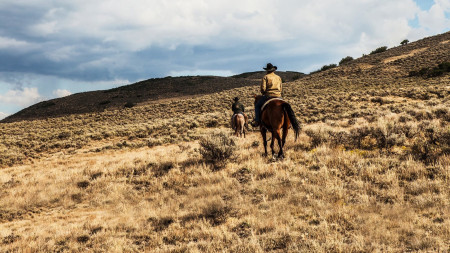
“Trapped Souls” just has hints in there of Sergio Leone’s Spaghetti Westerns. I laughed when I heard it. I had to chuckle because that is just so significant and I was thrilled to actually hear little nods to that in here.
Yeah. I wanted to make a nod to kind of each major musical contribution to the west, at some point being everything from kind of a John Barry-ish type chords that he was so fond of with “Dances with Wolves”, all the way back to “True Grit” and the Wayne pictures and then the Spaghetti Westerns that Ennio Morricone composed. There’s been such a great tradition that has evolved and has been different eras, you know? So there was a bit of a nod to those things within kind of this new style that we used for this particular western. I’m always a fan of making a nod to the roots of those who came before.
Every composer that does something like that, I am in love with it. I’m a gal that goes back to Bernard Herrmann and Max Steiner.
Oh for sure! You nailed it right there. Now when I’m writing, it’s just like Bernard Herrmann who is a huge influence on me, the same with Max Steiner. There is a kind of a baton handoff where Bernard Herrmann, at the time when he started doing scores, he would do these things like not use vibrato on his strings, which people thought was so strange. But then that now has become kind of a classic sound or the noir sound of mysteries. And there’s a nod to Herrmann, even in YELLOWSTONE, in the sense that I’m featuring the viola a lot, which is rarely a solo instrument. The only really time I can remember a viola playing being credited as a main credit was Bernard Herrmann’s score for “Vertigo” where he actually, in the main credits of score music composed by Bernard Herrmann, violas are more “solos by” and then they listed the viola player. And he wrote specifically for it. Usually either violin or cello, but the viola kind of often gets left out. And so that was really my nod to “Vertigo” in a sense on this score.
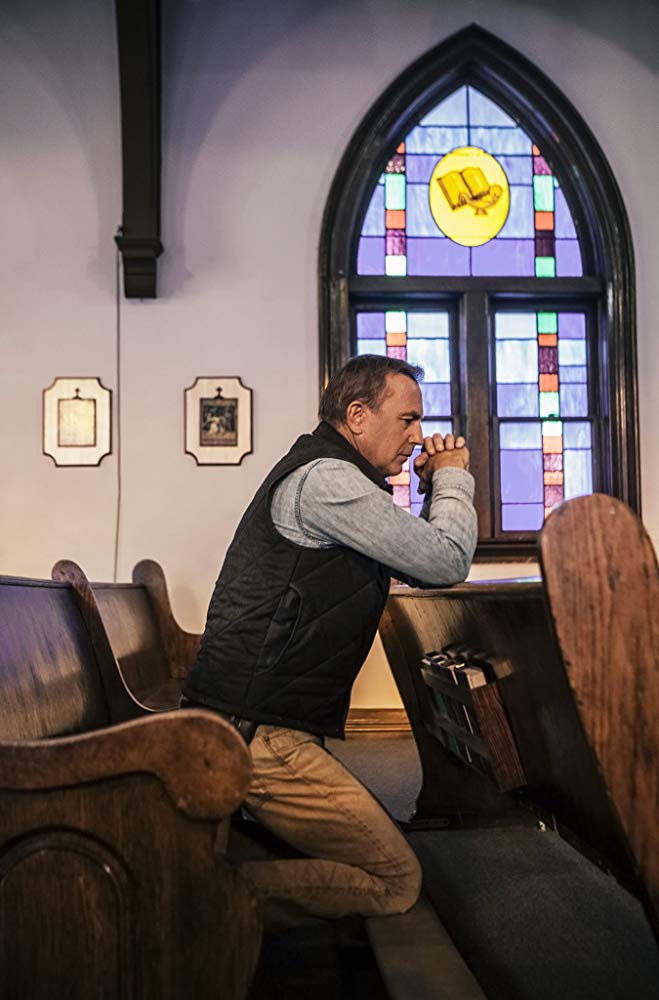
Something that I find really interesting is so often in themes – perfect example would be Max Steiner, “Gone with the Wind”. There’s “Rhett’s Theme”, there’s “Scarlett’s Theme”, there’s “Melanie’s Theme”, there’s Tara’s Theme”. Here with YELLOWSTONE, we don’t really have a musical theme for each character. It’s more about the events and the circumstances surrounding them, whereas even in some of your Marvel works, we’ve got themes associated with each particular avenger.
Yeah. You know, especially with YELLOWSTONE. With, of course, “Avengers”, there’s a theme per character, at least the major characters. But sometimes you get so many characters that having separate themes for each character ends up being a bleed and your brain kind of can’t process that many themes.
And it’ll destroy your score as a whole.
Right! So what I do and certainly in YELLOWSTONE, is you have two warring sides, two factions. Well actually more than that, but two basic factions, two families fighting. And they go through the same trials and tribulations, and kind of the father’s loss and the struggle of the next generation to make their mark. There’s three generations in the story and there’s betrayal and love and tragedy and triumphs and all these different things. And so what I did was, I wanted to write themes for those moods. But you would have a crossover with moods where it would really humanize both sides of the story here. Whereas if you have a certain emotion that happens and it puts yourself in kind of a situation, then you feel on the other side, if you view the theme that’s similar to that, that puts yourself in the other person’s shoes and I feel it illuminates the emotion of a story really, really well sometimes when there’s a lot of characters. “Expendables” is actually another example. There’s what, 15, 20 characters and you couldn’t have that many themes, so you’d have to kind of go with these mood themes that are very distinct and hummable. You want to be able to commit them to memory for an instant kind of nostalgia when you’re watching a movie, but at the same time, it finds a way to be more effective emotionally by scoring the emotional content.
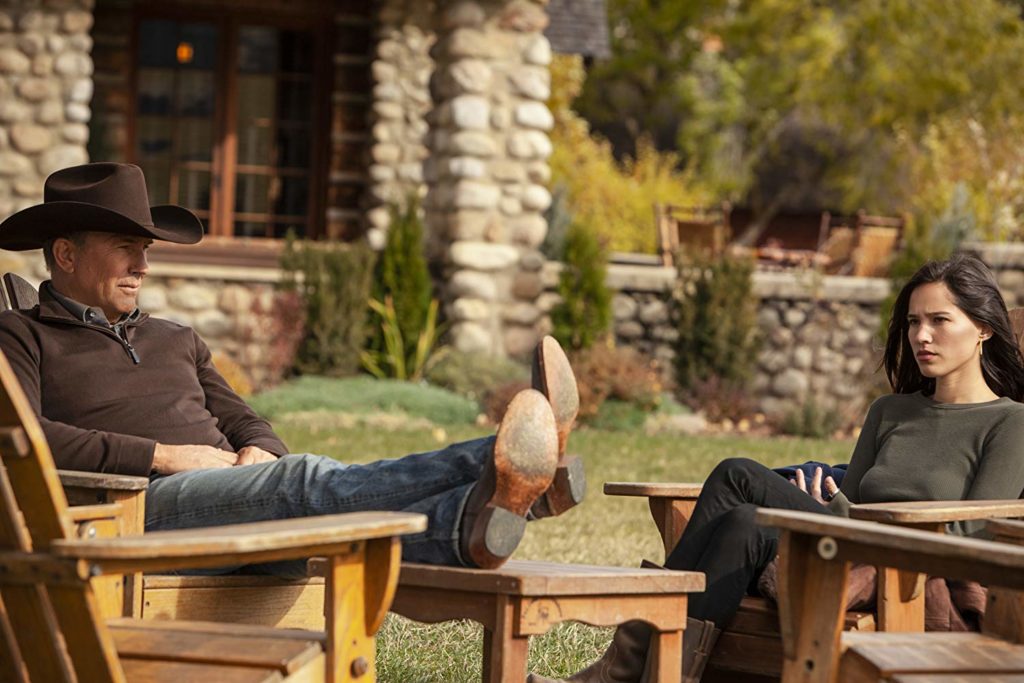
What is it about scoring that speaks to you, that drives you? Scoring is so specialized. Not everyone can do it. Alexandre Desplat, I love him. His work is always wonderful. Your work is wonderful. But not everybody can do scoring. So what is it about scores that speak to you and drive you?
I think the idea of being able to write for different emotions and mediums and move around, it’s freeing. I also love narrative and film. From a very early age, the two things I really loved in kind of as an artistic little kid was music and film. And I loved editing film and shooting with cameras and lenses and lighting and all that and I was fascinated by stories. I would write stories and all those things, but I had a knack for writing music mostly, combining these two things that I love. I think it’s a great way to tell stories with your music. And as opposed to other kinds of music, which I also loved and I write and I produce music in other areas, but if you were primarily, for instance, a pop person or a rock person or whatever, there’s an expectation from fans that you kind of need to repeat yourself and sometimes when you try to move around and change your genre, it’s going to go over like a lead balloon. But with film scoring, it’s expected and it’s praised and encouraged to write different styles and it really keeps things interesting as a writer of music for someone that writes music for a lifetime, to be able to do so many different styles in different times. It really keeps things challenging and fresh, even after having done I don’t know maybe I scored 85 movies, something like that at this point. I’m writing now. I’m writing tonight and it’s every day. But it’s a new project, it’s a new kind of style and I love that.
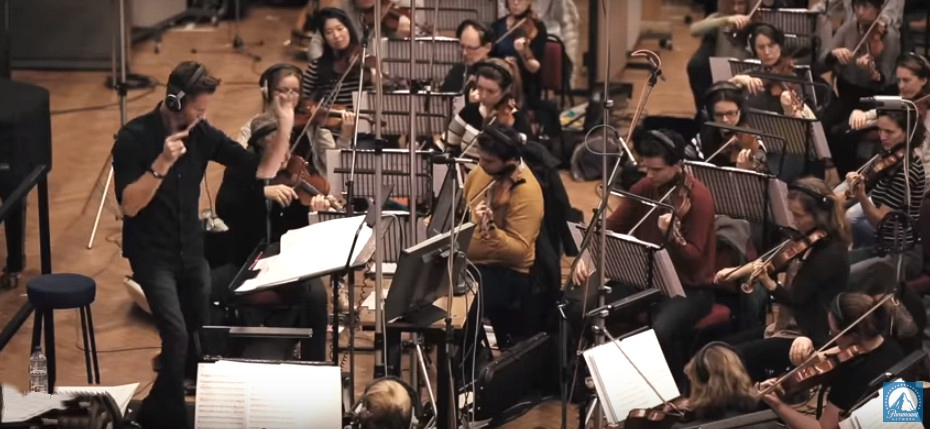
Do have a preference between scoring for television or scoring for film? With YELLOWSTONE you lucked out because you score for the entire season. You don’t come in for just one episode. For example, I know Rocky Moriana, he used to do a lot of TV scoring back in the ’70s. And but Rocky wouldn’t always do scoring for each episode. But here with YELLOWSTONE, it’s similar to a film in that you get to do it for every episode.
It was spread out enough. Rocky was a great actually example and he’s definitely missed, but yeah. The idea of being able to take the time to write this like a movie, we treated it like six movies, in sense or so. There was enough space between it and that’s how Taylor wanted it done and that’s what we did. So in that sense, I loved doing it that way. But in general, obviously, I do mostly movies because I do like taking the care, to use live instrumentation and make sure that it feels like something that really can stand the test of time. It’s what you hope for.
I’m curious, Brian, because you do conduct symphony orchestras, did you conduct the orchestration with the London Philharmonia for YELLOWSTONE? Or did you pass the baton off?
I did at Abbey Road. It was wild. Yeah, it was the “Star Wars” Room.
Could this project have been any more magical for you?
No. It was fantastic and Taylor and I are great artistic partners and we’re going to be doing more together very soon, so it’s exciting.
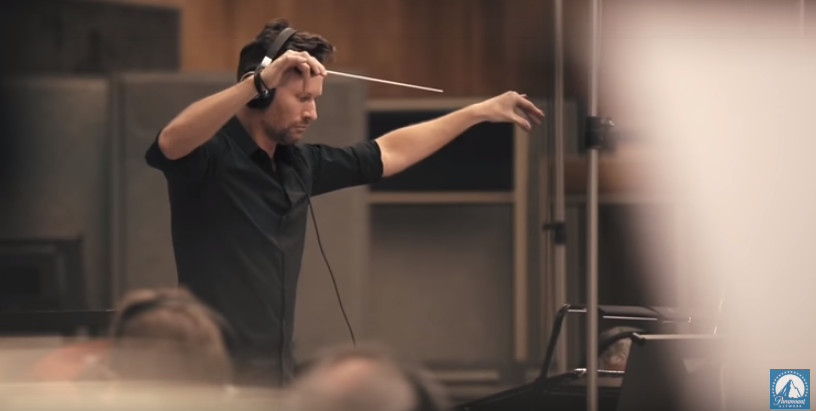
Now, are you composing new pieces for Season Two? Have you done that already?
Oh yeah! Season Two and then Taylor’s actually shooting a film that we’re going to be working on together. But yeah, Season Two is s a whole new level of storytelling. It needed new music and it does retain the YELLOWSTONE themes, of course, but now it evolved in a way that just has to kind of match the heightened storytelling that really is incredible. Season Two is amazing! It’s really, really, great. I feel it just keeps on getting better. Everyone just keeps topping themselves and the writing is excellent and yeah, I’m really excited for people to see Season Two.
by debbie elias, exclusive interview 04/02/2019
YELLOWSTONE, Season Two premieres on June 19th on the Paramount Network with more rich and beautiful scoring from BRIAN TYLER. Pick up Brian Tyler’s soundtrack for Season One now.












